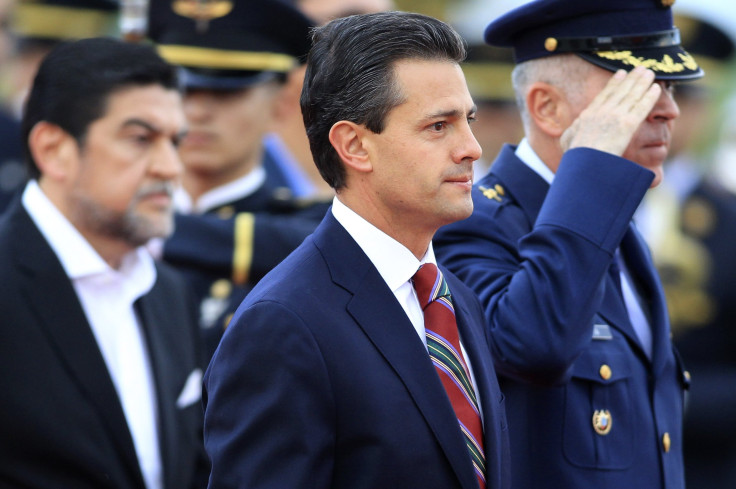Pacific Alliance Meeting Looks to China As America Doesn't Bother To Show Up

The presidents of Mexico, Colombia, Chile and Peru met on Thursday in Cali, Colombia, for the seventh Pacific Alliance meeting to discuss the economic integration of Latin America. The four fastest-growing economies in the region agreed to liberalize 90 percent of their transactions, and open the way to a more fruitful relationship with Asian markets.
The four alliance members, which between them represent half of the region's total exports, are setting their sights on China as their next big trade partner. The meeting, which included six other Latin American countries as well as three from outside the continent, did not have the United States as an attendee -- a significant absence from a country that is currently Latin America's main export market.
The countries of the Pacific Alliance, which was established in June 2012, represent together 35 percent of the region’s GDP. The economic venture also means a change in the geopolitics of the region, reports Spanish newspaper El País, after the stagnation of Mercosur, an older economic alliance that includes Brazil, Paraguay, Uruguay, Argentina and Venezuela.
“The alliance is more than a simple commercial group,” said Mexican President Enrique Peña Nieto to CNN. “It surpasses older agreements in that sense.”
Latin America's economic relationship with China has until now been unbalanced -- Mexico, for instance, aims to reduce the huge difference between its imports from China ($57 million in 2012) and the value of its exports to China ($5.7 million).
Ramón Padilla, an economist with Mexico's Economic Commission for Latin America, argued that while transnational agreements help with economic development, by themselves they are not enough. “They need to be complemented with active industrial policies,” he said.
Together with the four members, nine other countries attended the meeting. Spanish Prime Minister Mariano Rajoy and Canadian Prime Minister Stephen Harper attended as observers, while delegations from Australia, New Zealand, Japan and Uruguay attended to evaluate whether they wanted to become observers.
The other three in attendance attendants were the governments of Costa Rica, Panama and Guatemala, countries that aspire to become members of the Pacific Alliance. Costa Rica was the only one that left with a brand new membership, as reported by news agency EFE, while Guatemala is expected to join in six months’ time. Panama, on the other hand, reaffirmed its role as observer.
The alliance has been open to receiving new members, but as they made clear in a meeting of their diplomats in Washington on May 21, two requirements must be met. First, the aspiring member must adhere to the charter of the alliance, which stresses respect for democracy; second, the new country needs to have free trade agreements with the other alliance members before becoming a full member. Costa Rica fulfilled this last requirement Thursday, when President Laura Chinchilla signed the agreement with Colombia, the only country with which it did not have previous deals.
During the Washington meeting, the alliance stressed that it is an economic bloc, not a political forum, reported Hispanic website VOXXI. The statement was meant to allude to the possibility that countries with a less than spotless political record might seek membership, namely Venezuela.
Where does this leave the United States? Absent from this last summit and a mere observer in the Washington meeting, the U.S. might be taking a backseat to China in Latin American trade.
Padilla mentioned that one of the main advantages of the alliance is that it would allow Latin American countries to diversify their exports, of which 77 percent are currently destined to the U.S. "The alliance would open opportunities for smaller companies to look for markets more akin to their needs and offer," said the analyst.
The Economist reported that members of the alliance would like to see the U.S among them, as their ultimate goal is to create a free-trade area in the Americas. The U.S. currently has agreements with all members, and Deputy Secretary of Commerce Francisco Sánchez has said the department is "intrigued," but no decision has yet been made about joining.
Follow me on Twitter: @PReyMallen
© Copyright IBTimes 2024. All rights reserved.




















